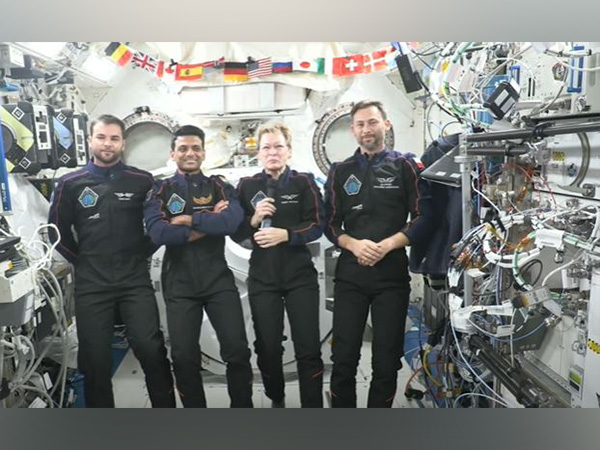Axiom Mission 4: Pioneering Research in Microgravity
The Axiom Mission 4 crew undertook crucial research aboard the International Space Station, focusing on microgravity's effects on plant development, human health, and technology. These endeavors aim to advance scientific knowledge, enhance space exploration strategies, and facilitate Earth-based innovations, such as sustainable farming and healthcare improvements.

- Country:
- United States
The Axiom Mission 4 team, aboard the International Space Station, conducted pivotal research to further scientific understanding and technological advancement, according to Axiom Space's mission blog. Commander Peggy Whitson and her crew engaged in studies that promise to bolster space exploration and fuel Earth-based innovation, marking significant progress in the mission's objectives.
On Tuesday, as part of their mission activities, Group Captain Shubhanshu Shukla focused on crucial microgravity research. He initiated the sprouts project to study how microgravity influences germination and early plant growth. Upon the seeds' return to Earth, researchers will cultivate them over generations to assess changes in genetics, microbial ecosystems, and nutrition.
Among other experiments, Shukla worked with microalgae for food, oxygen, and biofuel production. The crew also examined spaceflight's impact on eye movement and coordination via the Voyager Displays experiment. Simultaneously, they explored astronaut mental health and muscle loss solutions using electrical stimulation, critical for long-duration missions.
Further studies examined heat transfer in microgravity, with implications for Earth-based applications in extreme environments, healthcare, and sports. The team also collected data on cardiovascular, balance impacts, and radiation exposure. A cognitive test challenged crew members to recognize patterns defying Earth norms, with engagement from Axiom Space's Chief Scientist Dr. Lucie Low.
The Expedition 73 and Axiom Mission 4 crews prioritized biomedical research, focusing on cellular immunity and muscle stimulation. Launched from NASA's Kennedy Space Center on June 25, the crew successfully docked the Dragon spacecraft with the ISS, marking a milestone in the mission's journey.
(With inputs from agencies.)
ALSO READ
Vice President Dhankhar's Inspiring Visit: Boosting Innovation in Bihar
New Plant Breeders' Rights Act Comes Into Effect to Boost Innovation in Agriculture
Infosys and Zoetis Forge Strategic IT Partnership for Digital Innovation
Transforming School Meals: BW LPG India's Green Innovation with Akshaya Patra
PP Softtech: Revolutionizing India's Infrastructure with Innovation










